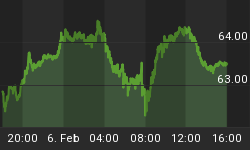Sterling leads the list of currencies losing against the dollar and yen amid widespread expectations the Bank of England will exercise its quantitative easing expansion option by purchasing an additional 25 bln in assets without seeking gov't approval. Concerted selling in emerging market bourses further elevates the risk-aversion lustre of USD and JPY. Oils $10 decline from last weeks $73.30 highs is partly provoked by the discovery of inappropriate trades being behind the buying. Reduced risk appetite & latest forecasts reports of falling global oil demand are further enforcing the positive correlation between equities and oil, thereby, weighing on commodity currencies. Chief among them is the CAD and NOK, with USDCAD firmly in its 4-week up-trend, targeting 1.1770, followed by 1.1810. USDNOK faces more substantial obstacles at 6.7.
But any dollar advances could intensify in the event that a deleveraging ensues on the commodities front as well as in commodities currencies (via renewed cenbank dovishness and currency jawboning). We cautioned 4-weeks ago that eroding risk aversion was key for any recovery in the greenback. In charting medium term for the risk appetite, the dollar and its most popular government bond, the chart below shows the 2-year progression of the interaction between US crude and US10-year yields. The latest upleg for both yields and oil is expected to sustain a retreat amid a lack of follow-through in recent data improvement as well as the pullback in equities. We could see oil to reach as low as $51-52 before end of summer, while 10-year yields could test the 3.15-20% territory before a gradual consolidation and renewed rebound emerges in Q4. Concerns with escalating Treasury borrowing will remain, but these will be temporarily outweighed by falling equities and weak data, which (temporarily) will play to the favour of bond prices at the expense of yields.


We stick with our bearish stance on USDJPY, reiterating the call for a break of 94.90 and onto 93.80. The lose-lose scenario for the pair has been especially highlighted by the yens broad strength during risk aversion and the dollars vulnerability at each bout of neutral-positive risk positioning. EURJPY faces relatively higher level of support at 133 yen, backed by 132, while GBPJPY clears the way for a break towards 150.20.

Euro fares more robustly amid the ECB's reluctance to expand its credit easing operations and its renewed calls for commercial banks to pass on lower rates. Any break below $1.3730s requires further escalation in risk aversion and greater sell-off in oil prices. Euros relative strength has propped EURGBP past the 0.8630 resistance, calling for 0.88 as the next focal point. GBPUSD is now vulnerable to the $1.5940, below which emerges support at $1.5770.
Vocal reminders by Chinese officials are expected to broaden (ranging from bureaucrats, central bankers and academics), which will limit any concerted dollar buying. Such remarks go beyond just political posturing. China has started the building blocks of boosting its currency via improving its invoice currency status, after which it will move towards garnering world liquidity for its currency and eventually liberalizing capital flows. China may not have the economic bargaining power to pullout of US treasuries, but it is increasingly accumulating short-term term maturities--already a vocal sign of aversion to the currency. Just as some Washington insiders shrugged my warnings from 3 years ago about Japan reducing its holdings of US treasuries, these are now well below those of China's. The same voices are now stating that China has nowhere to go. Let's pay attention to maturities and not just quantity.















